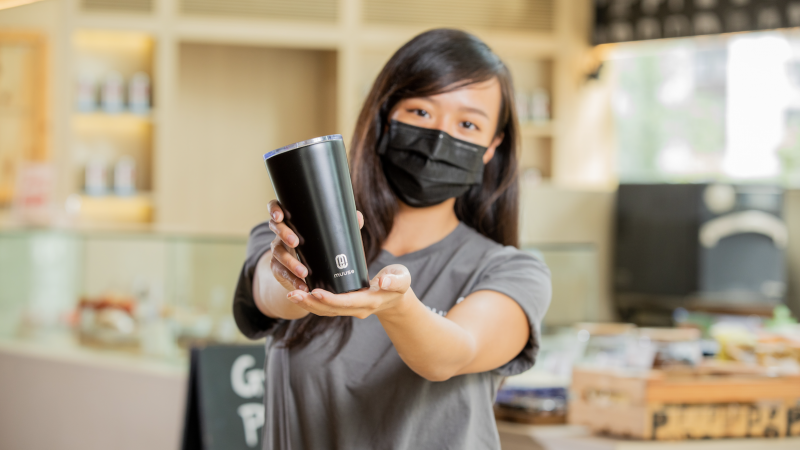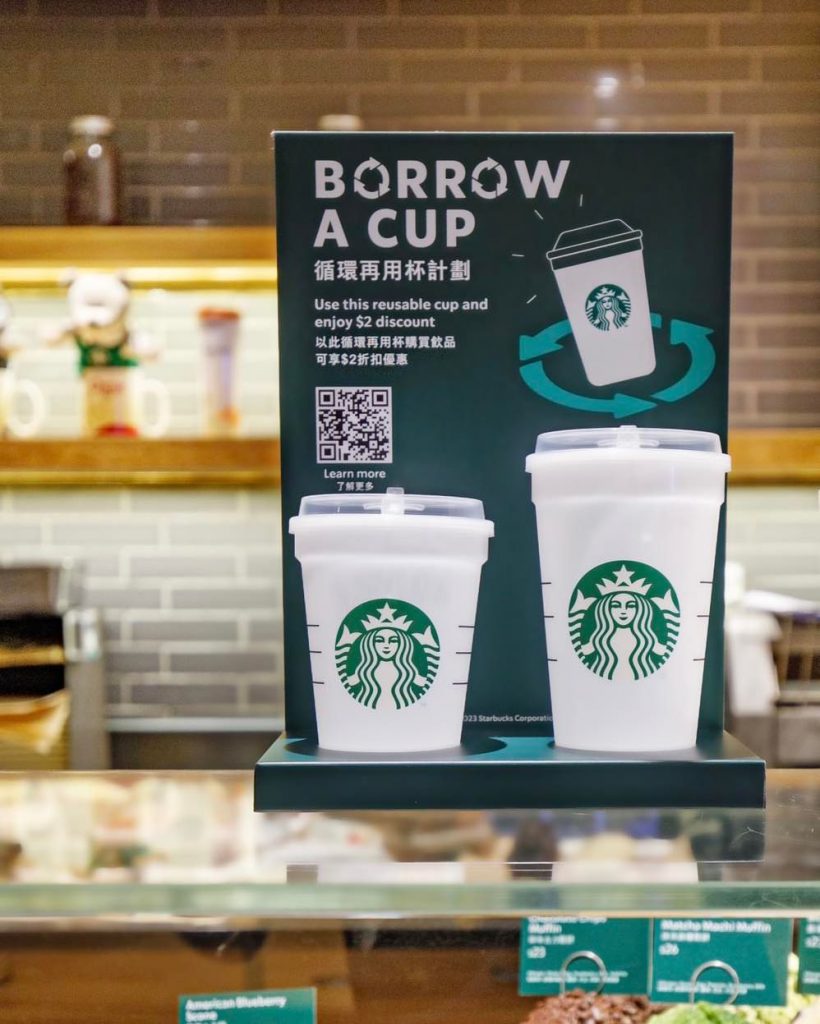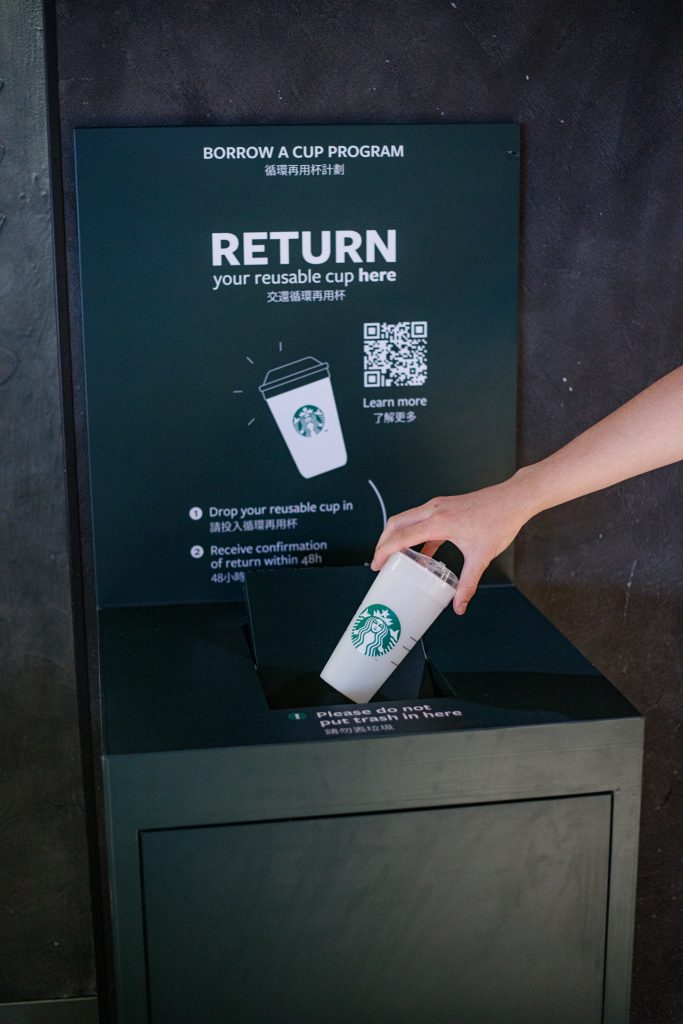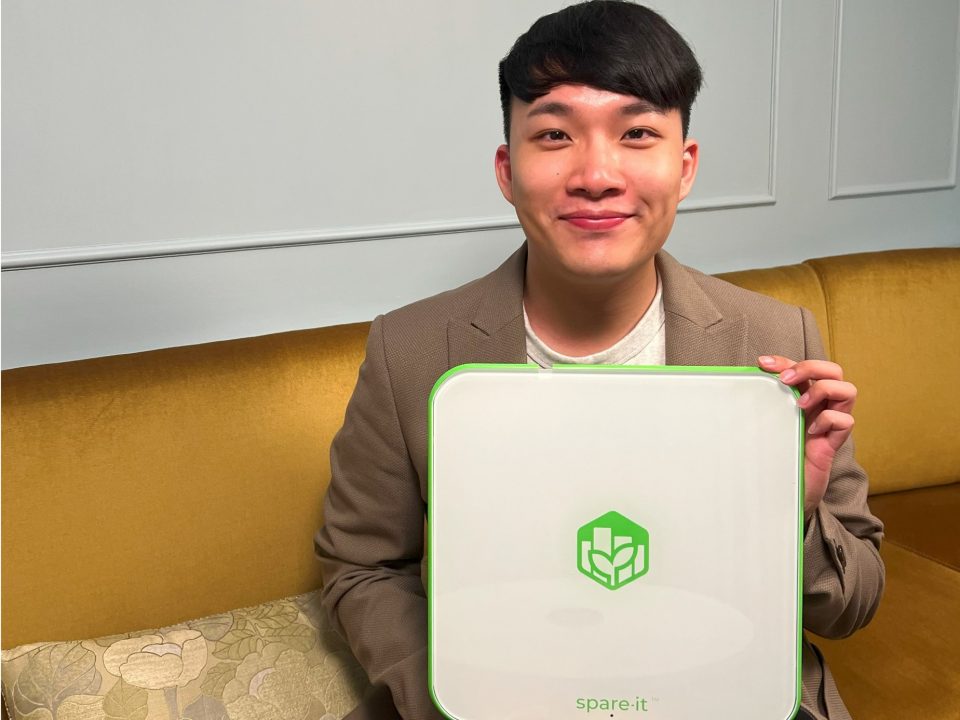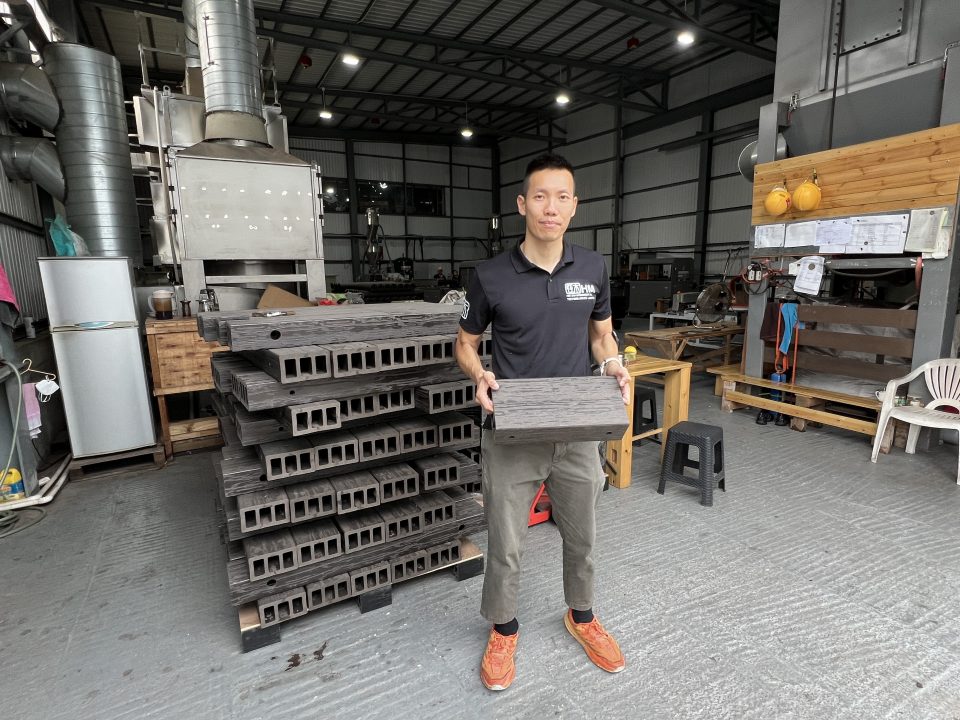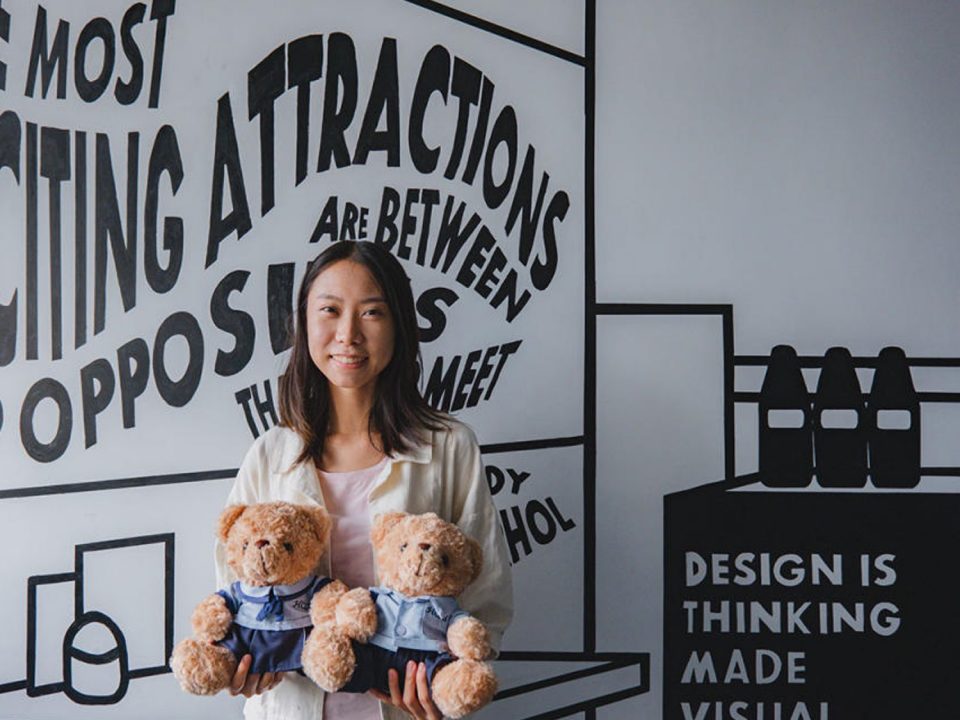
Conscious Paper: Turning Trash into Treasure with Handmade Paper Renaissance
January 12, 2024
Carbon Lite System: From Wood Waste to Net Zero Building, all via Technology
March 12, 2024Muuse on a Cuppa of Holistic Circularity through the Reusables Rental System
While the pandemic has accelerated the seamless integration of food delivery and takeaway into our daily routine, not many of us ponder or even realise the detrimental effect on our environment caused by the resulting waste from disposable plastic cutlery, containers, cups and packaging. According to a government report on waste statistics for 2021 , on average 11,358 tonnes of municipal solid waste (MSW) were disposed of at landfills daily in Hong Kong. Waste plastics constitute the second largest portion of MSW, at 2,331 tonnes per day (20.5% of total MSW), increased by 0.8% as compared to 2020. Among them, 225 tonnes were plastic/polyfoam dining wares, and 202 tonnes plastic bottles – to visualise, a double-decker bus weighs around 24 tonnes, meaning the daily casted dining wares were as heavy as 9.38 buses, the bottles 8.42 buses. Here we have yet to include the numbers of 1,251 tonnes per day of wastepaper dining wares, paper bags, tissue paper, etc.
In fact, waste coming from takeaway has long been a worldwide problem before the pandemic struck. For Muuse’s co-founders, the moment of revelation came in 2018 as they were surfing in Bali, witnessing debris such as takeaway packaging lining the shores and floating in the water. Startled by what they saw, they reckoned it would take more than diligent waste sorting and recycling to address the challenge. That’s exactly where the idea of a reusables rental platform – Muuse – has emerged.
Muuse, short for “multiple use”, offers more than just containers, but a transformative solution towards a sustainable future – all through a clever twist on one of the 4Rs: reuse enabled by technology.

| Established in 2018 by a group of environmentally conscious individuals, Muuse offers a forward-thinking waste-avoiding solution through their high-quality rental service for reusable containers. Their smart universal circular system aims to revolutionise how packaging is approached and facilitate a seamless transition to reusable packaging in both business-to-business and business-to-consumer relationships. Presently, the company is actively expanding their business and partnerships in Singapore, Hong Kong, USA and Canada. In Hong Kong, they provide their innovative reuse systems to clients such as Swire Properties and Starbucks. With reference to the United Nations Sustainable Development Goals, Muuse emphasises the following aspects: SDG 9 “Industry, Innovation and Infrastructure”, SDG 11 “Sustainable Cities and Communities”, and SDG 12 “Sustainable Consumption and Production”. The brand’s innovative spirit and dedication to a cleaner, greener future have garnered recognition, including winning Start-up of the Year at the 23rd Annual Business Awards in 2022, being chosen as one of the six finalists at the Liveability Challenge Sustainable Innovation Competition 2019, and being selected as a finalist on PepsiCo’s inaugural APAC Greenhouse Accelerator in 2023. |
Building a Circular Future through Technology and Resource Management
[Innovation] [Resource Management]
Blair Ng, Hong Kong Lead of Muuse explained how it works. “On the customer side, the journey is completely seamless: register on the app, visit a participating food and beverage (F&B) outlet and scan the cup’s QR code to borrow! You get your order in a nice reusable smart cup, on top of that a discount for the drink. To return, simply check your Muuse app for return locations near you. It’s a free service if you return the reusable within 30 days.”
Saving over 60,000 single-use items from landfills in Hong Kong and 200,000 single-use items globally, the Muuse team boasts a mission to set a precedent for resource management at every stage of the circular economy. To this end, they are committed to making use of responsible materials in their standard. The sturdy reusables per se, to start with, are the epitome of accountability.
“To ensure that our reusable system does contribute positively to waste reduction, we make sure to select the best quality reusables in the market.” Blair pointed out. The Muuse tumblers are made of 75% top-quality recycled stainless steel, paired with a silicone lid made from durable polypropylene plastic, and are available in three sizes, all for maximising product lifespan and usability. To ensure a closed return loop, Muuse has implemented cutting-edge technology: each reusable item is tagged with a unique serialised QR code that allows real-time usage tracking. This not only ensures ultimate traceability and an efficient recording of user behaviour data, but offers live data-driven insights that educate and empower the users, partnering merchants and business clients.

Since the reusables are one of the most important assets of the reuse company, Muuse charges for any lost or unreturned reusables outside the 30-day period. This policy optimises customer experience and convenience. It also serves as a reinforcement of responsible handling practices to the end users. Across all markets (i.e. Hong Kong, Singapore, USA and Toronto), Muuse has achieved over a 98% return rate, proving the system’s circularity and feasibility. “We hope that through this user-friendly business model, we could cultivate in Hong Kong a culture of borrowing and returning reusables to designated points, which encourages consumers to embrace their own reuse journey.”
Muuse goes beyond offering their own reusables. Their white labelling and customisation options provide clients with flexibility and the ability to align with their distinct brand identities. Blair continued, “This allows our solution to be deployed at scale with the ability to share environmental impact to our partners and users.” Take Starbucks, one of Muuse’s latest partners in Hong Kong and the industry giant, as an example.
“Starbucks has set a multi-decade commitment to reduce their carbon, water and waste footprint by half and have pledged to have no single-use cups by 2030, but they have chosen to use their own branded eco-friendly tumblers to appeal to their existing fanbase,” Blair recalled. “Our solution was simple but effective: attaching our QR codes to the Starbucks-branded reusable cups. By integrating their cups into the Muuse platform, we are able to ensure traceability and return of the cups.”
By doing so, Muuse had their first pilot project with Starbucks in Singapore at three locations. The reception was phenomenal, with reinforcement over 7,000 cups saved from landfill across the four-month pilot. The conversation then expanded to Hong Kong. “The reusable system has been extremely well-received by the loyal fanbase and community, with well over 35,000 borrows so far. We’ve found that Hong Kong users are well-versed in sustainability issues and the effects of single-use plastic waste, and are therefore very willing and open to participating in the ‘Borrow A Cup’ programme at Starbucks.”
Sustainability at Scale: The Role in Catalysing Responsible Choices
[Customer Supplier Relationship]
While the statistics look optimistic, Blair acknowledges that implementing a reusable packaging system requires a change in systems and behaviour among various stakeholders. It’s not as simple as just switching one product stock-keeping unit for another; outlets or businesses need to change their internal operating processes, and consumers must adopt new approaches to takeaway. Without overarching mandates, regulations, or taxation, these are challenging and require both parties to desire change and know how to do it.
The situation is further complicated by regional differences. “We’ve definitely seen some differences across markets. In Canada, we’ve found that consumer understanding of sustainability issues is further along than they are here in Asia, while I think it’s clear that here in Asia consumers are more open to engaging new technology and innovation.” Blair said.
“In Hong Kong, as the effects of COVID-19 are fading away, we’ve noticed that corporates, coffee chains and even consumers are becoming more open to exploring reuse and what it means for them, shifting towards this new norm. We’ve also been extremely privileged to partner with companies like Swire Properties and Starbucks, which are taking the initiative to push this transition. With the upcoming legislations and single-use tableware ban, we hope to see more companies taking lead in transitioning their F&Bs towards reusables.”
Isn’t the pandemic making people more concerned and sensitive to the hygiene of reusables, which would limit the opportunities in pushing Muuse’s reusable container system and business development? “To our surprise, we’ve noticed the opposite has occurred,” remarked Blair. “Now that we are in a recovery period from the pandemic, there has been a global shift in attitudes towards climate issues, and we have been receiving more inbound interest than ever before. Whilst there’ll always be questions in regard to hygiene, there generally aren’t too many concerns from users. We’ve found it’s more of a mindset issue, as most people are happy to use tableware and cutlery when dining in at a restaurant, without any hygiene concerns, using our reusables is no different to that.”
From Top to Bottom, Leading towards a Sustainable Neighbourhood
Another tip from the start-up is the setup of an overarching infrastructure that grows with the brand, which is a smart reusable cup network in Muuse’s case. In 2020, Swire Properties invited Muuse to start a conversation to reduce single-use cups and promote circularity across their portfolios. “Sustainable development is core to Swire Properties’ business philosophy; they are always on the lookout for innovative solutions to help encourage positive changes among tenants and the communities, driving collective action for sustainability.” Blair looked back on their first integrated reuse system in Hong Kong.
“Back in 2020, there was no other service that could provide traceable technology to reusables in Hong Kong, so the discussion soon turned into Hong Kong’s first smart reusable cup network.” From launch to present, the network has saved over 23,000 single-use cups from landfill and maintained a 99% return rate, indicating both the feasibility of the system and the sustainability consciousness of Hong Kong consumers.
“The Taikoo Place project has shown us the importance of setting an overarching infrastructure for the project to blossom. We’ve also learnt through the process, for example, we’ve added one more size of tumbler (8oz) after listening to the feedback of tenants (there were originally two sizes: 12oz and 16oz). Now we have expanded to 12 F&B locations, and Muusers (the name of Muuse users) are able to return the cups at five return points within the Taikoo Place’s vicinity. To further ‘close the loop’, and reduce the costs and carbon emissions of logistics, we also began washing and sanitising the cups at one of Swire Properties’ F&B tenant’s kitchens.” Blair pointed out, “Going forward, we are looking to expand our network of partners and product range even further, maximising our availability and optimising the convenience of reuse in the area.”

Unlocking Sustainable Habits: Kick-start Reusable Solutions at One-off Events
With the lift of the pandemic’s social distancing restrictions, another good platform to introduce the system that Muuse would like to focus more on is events. “Events are a great way to introduce consumers to reuse,” explained Blair. “It’s a one-off experience, and consumers are more open to trying new things outside of their daily routine. From an operational perspective, events also offer economies of scale, an opportunity to interact and engage potential customers, and event organisers can bake the cost of reusables into the ticket price. Because it’s easier to influence the infrastructure and experience at an event, some event organisers may even take the opportunity to remove the single-use altogether, allowing customers to bring their own or rent a cup at the event. In this case, adoption rates are much higher, and it shows how powerful setting the ‘default’ or banning disposables can be.”
In Singapore, Muuse has already supported several large-scale events, including musical festivals and government community events, by providing reusable tableware for rental as well as washing service for cups brought back at the end of the day. Similarly, in Hong Kong, the brand has supported many corporate events and lunch & learn sessions within the Taikoo Place area. This year Muuse worked together with Swire Properties to bring the first zero-waste White Christmas Street Fair to Taikoo Place, supplying reusable food boxes and cups for rental at the event space.
Over the coming decade, Muuse has charted a visionary path to expand their tech-enabled reusable system city-wide in all their markets and launch into markets that they have yet tapped into, for which the team considered feasible in obtaining sufficient funds from investors. “There has been growing interest in impact funding and solutions to the single-use crisis. Reuse stands up as one of the most legitimate alternatives and solutions in the market currently. Our success with the current projects definitely contributes to our future funding efforts to expand further.”
“We believe that once reuse is accessible to all, shifts in packaging norms and habits will become inevitable.” Concluded Blair.
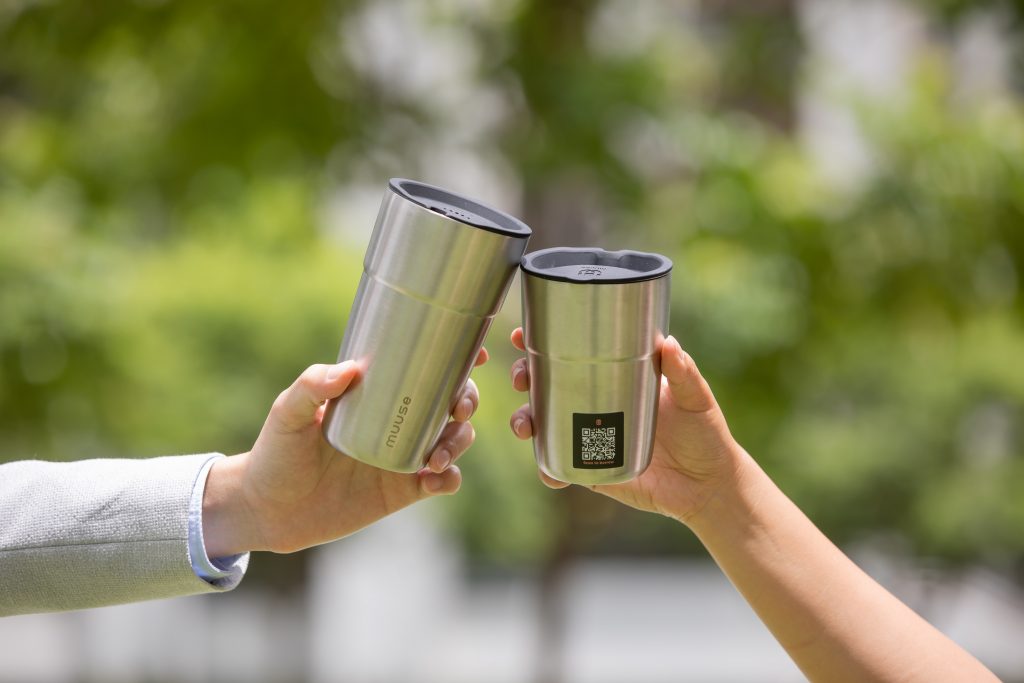
Muuse is one of the recipients of the Merit Award in the SMEs Sustainability Leadership Recognition Scheme 2022 cohort. The Scheme is part of the Partnership for Sustainability Leadership in Business (PSLB), which is initiated by the Centre for Civil Society and Governance, The University of Hong Kong, and supported by The Hongkong Bank Foundation.



